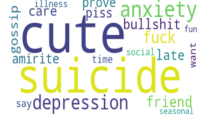Conclusion
The study of rhetoric and the assumption that rhetors generate the grounding for persuasion have been at the root of Thomas Szasz’s psychiatric critiques for almost two generations. His corpus has consistently pointed to a psychiatric rhetoric which creates, rather than discovers, “mental illnesses,” a metaphorical pseudo-medical labeling which, when accepted, confounds the attribution of adult responsibility and substitutes instead an infantilizing dependency.
Similar content being viewed by others
References
American Psychiatric Association (2004). Diagnostic and statistical manual of mental disorders fourth edition. Washington, D.C: American Psychiatric Association.
Bitzer, L.F. (1968). The rhetorical situation. Philosophy and Rhetoric, 1, 1–14.
Cooper, L. (1932). The Rhetoric of Aristotle. New York: Appleton-Century-Crofts. “Exit Mr. Duncan: Clinical depression sidelines a promising career.” (2006, June 23) p. A24.
Fritze, J. (2006, June 23). Duncan bows out: Candidate’s depression diagnosis reshapes race for governor. The Baltimore Sun, pp. 1, 15.
Jamison, K.R. (2006, June 25). Acknowledging depression: Public figures perform a service in revealing mental illness. The Washington Post, p. B7.
Kessler, R., Coccaro., E.F., Fava, M., & Jaeger, S. (2006). The prevalence and correlates of DSM-IV intermittent explosive disorder in the National Comorbidity Survey replication. Archives of General Psychiatry, 63, 669–678.
Kotulak, R. (2006, June 6). Anger attacks common and research tells why: Intermittent explosive disorder affects 1 in 20. Chicago Tribune, p. 7.
Moe, R. (2006, July 9). What my son couldn’t tell us: Mental illness and suicide must not be taboo topics. The Washington Post, p. B07.
Mosk, M., & Marimow, A. E. (2006, June 23). Duncan drops bid for governor: Exit pits Ehrlich against O’Malley in new Md. Terrain. The Washington Post, p. 01.
Orwell, G. (2003[1945]). Animal Farm. Orlando, FL: Harcourt.
Ryle, G. (1949). The concept of mind. London: Hutchinson’s University Library.
Szasz, T.S. (1961). The myth of mental illness: Foundations of a theory of personal conduct. New York: Hoeber-Harper.
Szasz, T.S. (1978). The myth of psychotherapy: mental healing as religion, rhetoric and repression. New York: Anchor.
Szasz, T.S. (1987). Insanity: The idea and its consequences. New York: Wiley.
Szasz, T. (1999). Fatal freedom: The ethics and politics of suicide (Westport: Praeger, 1999).
Vatz, R.E. (1973). The myth of the rhetorical situation. Philosophy and Rhetoric, 6, 154–61.
Vatz, R.E. (1975). Letter to the editor. Philosophy and Rhetoric, 8, 68.
Vatz, R.E. (1981). The Forum: Vatz on Patton and Bitzer. Quarterly Journal of Speech, 67, 95–99.
Vatz, R.E. (2006, June 28). Dealing with depression. The Washington Post, p. A24.
Vatz, R.E. and Weinberg, L.S. (1994). The rhetorical paradigm in psychiatric history. Thomas Szasz and the myth of mental illness. In M.S. Micale & R. Porter (Eds.) discovering the history of psychiatry (pp. 311–330), New York: Oxford University Press.
Author information
Authors and Affiliations
Corresponding author
Rights and permissions
About this article
Cite this article
Vatz, R.E. Rhetoric and psychiatry: A Szaszian perspective on a political case study. Curr Psychol 25, 173–181 (2006). https://doi.org/10.1007/s12144-006-1001-9
Issue Date:
DOI: https://doi.org/10.1007/s12144-006-1001-9



